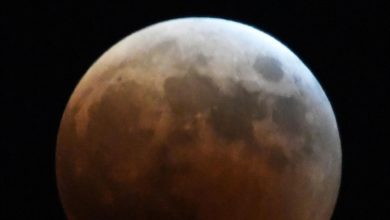What is ‘Hangover Anxiety’ & What May Cause It?
Headache


 Some of the possible causes of hangover anxiety include temporary changes in brain chemistry caused by alcohol consumption, dehydration and sleep cycle disruption.While physical discomfort already makes a hangover a rather unpleasant experience, this condition may also be accompanied by a feeling of anxiety and shame, which is sometimes referred to simply as hangxiety (a portmanteau of “hangover” and “anxiety”).Although a hangover itself is a well-known and rather widespread phenomenon, hangxiety afflicts only about 12 percent of the people who consume alcohol and it is not clear exactly why people exhibit different symptoms, Craig Gunn, a researcher in the School of Psychological Science at the University of Bristol, told Live Science.”There is an increase in proinflammatory cytokines [a class of inflammatory molecules] and cortisol [stress hormone] levels,” he said. “In addition, the physiological effects of a hangover, such as an increased heart rate, can mimic those seen during anxiety. Together, these could lead to increased feelings of anxiety for certain individuals.”As the media outlet pointed out, one study from 2019 suggested that temporary changes in brain chemistry caused by alcohol may be responsible for mood swings during hangovers.Essentially, when alcohol boosts a neurotransmitter responsible for calming and blocks another neurotransmitter that excites the brain, the brain tries to compensate by decreasing the production of the former neurotransmitter and increasing the production of the latter, Dr. David Nutt of the Imperial College London explained.
Some of the possible causes of hangover anxiety include temporary changes in brain chemistry caused by alcohol consumption, dehydration and sleep cycle disruption.While physical discomfort already makes a hangover a rather unpleasant experience, this condition may also be accompanied by a feeling of anxiety and shame, which is sometimes referred to simply as hangxiety (a portmanteau of “hangover” and “anxiety”).Although a hangover itself is a well-known and rather widespread phenomenon, hangxiety afflicts only about 12 percent of the people who consume alcohol and it is not clear exactly why people exhibit different symptoms, Craig Gunn, a researcher in the School of Psychological Science at the University of Bristol, told Live Science.”There is an increase in proinflammatory cytokines [a class of inflammatory molecules] and cortisol [stress hormone] levels,” he said. “In addition, the physiological effects of a hangover, such as an increased heart rate, can mimic those seen during anxiety. Together, these could lead to increased feelings of anxiety for certain individuals.”As the media outlet pointed out, one study from 2019 suggested that temporary changes in brain chemistry caused by alcohol may be responsible for mood swings during hangovers.Essentially, when alcohol boosts a neurotransmitter responsible for calming and blocks another neurotransmitter that excites the brain, the brain tries to compensate by decreasing the production of the former neurotransmitter and increasing the production of the latter, Dr. David Nutt of the Imperial College London explained. ViralScientific Tips For Battling Hangovers Ahead of the Holiday Season18 December, 08:44 GMTHowever, as alcohol wears off, the brain is thus left “overactive” for some time and this state may result in a feeling of anxiety.Further research from 2019 also revealed a peculiar trend as apparently shier drinkers experienced higher levels of anxiety the day after boozing than their less shy counterparts.Noting that “psychological processes such as emotion regulation or coping styles may contribute to how we interpret and deal with hangover symptoms,” Gunn added that “those with the tendency to delay or avoid dealing with emotive situations and those with difficulties in regulating emotions may experience more severe hangovers.”Hangxiety may also be related to other physiological effects of alcohol consumption, such as dehydration, disruption of one’s sleep cycle and changes in the gut microbiome, the media outlet suggested.
ViralScientific Tips For Battling Hangovers Ahead of the Holiday Season18 December, 08:44 GMTHowever, as alcohol wears off, the brain is thus left “overactive” for some time and this state may result in a feeling of anxiety.Further research from 2019 also revealed a peculiar trend as apparently shier drinkers experienced higher levels of anxiety the day after boozing than their less shy counterparts.Noting that “psychological processes such as emotion regulation or coping styles may contribute to how we interpret and deal with hangover symptoms,” Gunn added that “those with the tendency to delay or avoid dealing with emotive situations and those with difficulties in regulating emotions may experience more severe hangovers.”Hangxiety may also be related to other physiological effects of alcohol consumption, such as dehydration, disruption of one’s sleep cycle and changes in the gut microbiome, the media outlet suggested.



